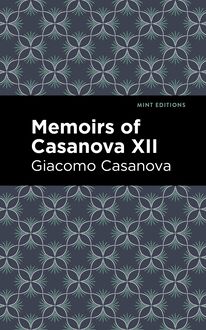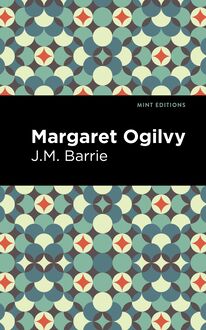-
 Univers
Univers
-
 Ebooks
Ebooks
-
 Livres audio
Livres audio
-
 Presse
Presse
-
 Podcasts
Podcasts
-
 BD
BD
-
 Documents
Documents
-
- Cours
- Révisions
- Ressources pédagogiques
- Sciences de l’éducation
- Manuels scolaires
- Langues
- Travaux de classe
- Annales de BEP
- Etudes supérieures
- Maternelle et primaire
- Fiches de lecture
- Orientation scolaire
- Méthodologie
- Corrigés de devoir
- Annales d’examens et concours
- Annales du bac
- Annales du brevet
- Rapports de stage
La lecture à portée de main
Vous pourrez modifier la taille du texte de cet ouvrage
Découvre YouScribe en t'inscrivant gratuitement
Je m'inscrisDécouvre YouScribe en t'inscrivant gratuitement
Je m'inscrisEn savoir plus
Vous pourrez modifier la taille du texte de cet ouvrage
En savoir plus

Description
Claude’s Confession (1865) is a novel by French author Émile Zola. Written at night while Zola was employed at Hachette, Claude’s Confession proved scandalous upon publication and resulted in the loss of his job. Undeterred by the response to his literary debut, Zola took advantage of his newfound infamy in order to embark on a career as one of France’s foremost experimental writers. Intent on exploring taboo and the lives of people on the edge of society, Zola crafts a narrative capable of illuminating the human condition while humanizing those typically disdained by the literary elite. Born and raised in Provence, Claude is shocked to find that the Paris of legend is a city mired in poverty, decay, and loneliness. As he struggles to make ends meet in order to pay for his tiny apartment, he takes notice of a young woman who lives in the same building as him. Although he knows she is a prostitute, his feelings for him grow stronger than the impulse to look down on her way of life. After months of silent longing, he opens his door to find her standing there, desperate for help after being evicted. Despite his limited income, he welcomes her inside, and their relationship soon develops into a passionate romance. Claude’s Confession is a story of forbidden love, fading hope, and the false promise of modern life. Written at the very beginning of Zola’s career, it shows the innerworkings of a young mind interested in subjects too often ignored by writers, a mind whose guiding principle is truth and truth alone. With a beautifully designed cover and professionally typeset manuscript, this edition of Émile Zola’s Claude’s Confession is a classic work of French literature reimagined for modern readers.
Sujets
Informations
| Publié par | Mint Editions |
| Date de parution | 21 mai 2021 |
| Nombre de lectures | 0 |
| EAN13 | 9781513287164 |
| Langue | English |
| Poids de l'ouvrage | 1 Mo |
Informations légales : prix de location à la page 0,0450€. Cette information est donnée uniquement à titre indicatif conformément à la législation en vigueur.
Extrait
Claude’s Confession
Émile Zola
Claude’s Confession was first published in 1865.
This edition published by Mint Editions 2021.
ISBN 9781513282145 | E-ISBN 9781513287164
Published by Mint Editions®
minteditionbooks .com
Publishing Director: Jennifer Newens
Design & Production: Rachel Lopez Metzger
Project Manager: Micaela Clark
Translation By: George D. Cox
Typesetting: Westchester Publishing Services
C ONTENTS I. A M ANSARDE IN THE L ATIN Q UARTER II. A P OET ’ S L ONGINGS III. T HE Y OUNG H ARVEST -G IRL IV. T EMPTATION V. P AQUERETTE VI. D ESPAIR VII. L AURENCE VIII. A M ISSION FROM ON H IGH IX. T HE C OURSE OF R EFORMATION X. T HE E MBROIDERY S TRIP XI. O N THE W AY TO THE B ALL XII. T HE P UBLIC B ALL XIII. A N A CCEPTANCE OF R EALITY XIV. J ACQUES AND M ARIE XV. B ITING P OVERTY XVI. R EMINISCENCES XVII. C LAUDE ’ S L OVE XVIII. J ACQUES ’ S UPPER XIX. A T RIP TO THE C OUNTRY XX. A B ITTER A VOWAL XXI. A H ORRIBLE P ROPOSITION XXII. T HE S HADOWS ON THE W ALL XXIII. P RACTICAL A DVICE XXIV. S AD R EFLECTIONS XXV. T HE F AIR XXVI. A T M ARIE ’ S B EDSIDE XXVII. M ARIE ’ S D EATH XXVIII. L AURENCE ’ S D EPARTURE XXIX. C ONCLUSION
I
A M ANSARDE IN THE L ATIN Q UARTER
W inter is here: the air in the morning becomes fresher, and Paris puts on her mantle of fog. This is the season of social soir é es. Chilly lips search for kisses; lovers, driven from the country, take refuge beneath the mansardes, and, huddling together before the hearth, enjoy, amid the noise of the rain, their eternal spring.
As for me, I live in sadness: I have the winter without the spring, without a sweetheart. My garret, away up a damp staircase, is large and irregular; the corners lose themselves in the gloom, the bare and slanting walls make of the chamber a sort of corridor which stretches out in the form of a bier. The wretched furniture, the narrow planks, ill fitted and painted a horrible red color, crack funereally when they are touched. Shreds of faded damask hang from the canopy of the bed, and the curtainless window opens upon a huge black wall, never changing and always repulsive.
In the evening, when the wind shakes the door and the walls are dimly outlined by the flame of my lamp, I feel a sad and icy weariness press upon me. I pause before the expiring fire on the hearth, before the ugly brown roses on the wall paper, before the fa ï ence vases in which the last flowers have faded, and I imagine I hear everything complain of solitude and poverty. This complaint is heart-rending. The entire mansarde demands of me laughter, the riches of its sisters. The hearth exacts a huge, joyous blaze; the vases, forgetting the snow, sigh for fresh roses; the very air speaks to me of flaxen hair and white shoulders.
I listen and cannot help feeling sorrowful. I have no chandelier to suspend from the ceiling, no carpet to hide the irregular and broken planks. And, when my chamber refuses to smile save upon a beautiful white curtain, upon plain but shining furniture, I grow more sorrowful still because I cannot satisfy it. Then it seems to me more deserted and miserable than ever: the wind comes in colder gusts, the gloom grows denser; the dust gathers in heaps on the floor, the wall paper tears showing the plaster. There is a general pause, and, in the silence, I hear the sobs of my heart.
Brothers, do you remember the days when life for us was a dream? We had friendship, we had visions of love and glory. Do you recall those cool evenings in Provence, when, as the stars came out, we sat down in the furrows still glowing with the heat of the sun? The crickets chirped; the harmonious breath of summer nights enveloped our chat. All three of us let our lips say what our hearts thought, and, in our simplicity, we adored queens, we crowned ourselves with laurels. You told me your dreams, I told you mine. Then, we deigned to come back to earth. I confided to you my plan of life, consecrated to toil and struggles. Feeling the wealth of my mind, I was pleased at the idea of poverty. You were ascending, like me, the stairway of the mansardes, you hoped to nourish yourselves on high thoughts; in your ignorance of the reality, you seemed to believe that the artist in his sleepless night gains the bread of the morrow.
At other times, when the flowers were sweeter, the stars more radiant, we caressed visions of loveliness. Each of us had his sweetheart. Yours—do you recollect?—brown and laughing girls, were queens of the harvest and vintage; they played about, decked with ears of grain and bunches of grapes, and ran along the paths, carried away in the whirl of their turbulent youth. Mine, pale and blonde, had the royalty of the lakes and clouds; she walked languidly, crowned with verbenas, seeming at each step about to quit the earth.
Do you remember, brothers, that last month we went thus to dream amid the fields and draw the courage of man from the holy faith of the child? I was weary of dreaming, I thought myself strong enough for reality. Five weeks have passed since I left our broad district, fertilized by the hot breath of the south. I grasped your hands, said adieu to our favorite field, and was the first to go in search of the crown and the sweetheart reserved by God for our twentieth year.
“Claude,” you said to me at the moment of departure, “you are about to begin the struggle. To-morrow, we shall not be beside you as formerly, imparting to you hope and courage. You will find yourself alone and poor, having only recollections to people and gild your solitude. The way is rough, people tell us. Go, however, since you thirst for life. Remember your plans: be firm and loyal in action, as you were in your dreams; live in the garrets, eat your dry bread, smile at want. As a man, do not jeer at the ignorance of the child, but accept the hard labor of the grand and the beautiful. Suffering elevates a man, and tears are dried one day when one has greatly loved. Have courage and wait for us. We will console you and scold you from here. We cannot follow you now, for we do not possess your strength; our dream is yet too seductive for us to change it for reality.”
Scold me, brothers, and console me. I am only commencing to live, and I am already very sad. Ah! how joyous was the mansarde of our dreams! How the window sparkled in the sunshine, and how poverty and solitude rendered life there studious and peaceful! Want had for us the luxury of light and smiles. But do you know how ugly a real mansarde is? Do you know how cold one is when one is alone, without flowers, without white curtains upon which to rest the eyes? Light and gayety pass by without entering, fearing to venture amid the gloom and silence.
Where are my fields and my brooks? Where are my setting suns, which gilded the tops of the poplars and changed the rocks into sparkling palaces? Have I deceived myself, brothers? Am I only a lad who would be a man before his time? Have I had too great confidence in my strength, and should I still be dreaming beside you?
The day is breaking. I have passed the night before my extinguished fire, looking at my poor walls and relating to you my first sufferings. A wan light illuminates the roofs, a few flakes of snow fall slowly from the pale, sad sky. The awakening of great cities is tumultuous. I hear, coming up to me, those street murmurs which resemble sobs.
No; this window refuses me the sunlight, this floor is damp, this mansarde is deserted. I cannot love, I cannot work here.
II
A P OET ’ S L ONGINGS
Y ou are irritated by my lack of courage, you accuse me of coveting velvet and bronze, of not accepting the holy poverty of the poet. Alas! I love broad curtains, candelabra, marble upon which the chisel has left the impress of its powerful caresses. I love everything that shines, everything that has beauty, grace and richness. I need princely dwellings, or, rather, the fields with their carpets of fresh and perfumed moss, their draperies of leaves, their wide horizons of light. I prefer the luxury of God to the luxury of men.
Pardon, brothers, for silk is so soft, lace so light; the sun laughs so gayly in gold and crystal!
Let me dream; have no fear for my pride. I wish to hear your strong and cheering words, to embellish my mansarde with gayety, to illuminate it with noble thoughts. If I feel too lonely, I will create for myself an ideal sweetheart who, responsive to my call, will run to kiss me on the forehead after the accomplishment of my task. If the floor be cold, if I have no bread, I will forget winter and hunger in feeling my heart warm. In one’s twentieth year it is easy to be the artisan of one’s joy.
The other night, the voice of the winds was melancholy, my lamp was dying, my fire was extinguished; sleeplessness had troubled my mind, pale phantoms were wandering about me in the gloom. I was afraid, brothers, I felt myself weak, I shed tears. The first ray of dawn drove off the nightmare. Now, the obstacle is no longer in me. I accept the struggle.
I wish to live in a desert, hearing only my heart, seeing only my dream. I desire to forget men, to question myself and reply. Like a young wife whose bosom quivers with a mother’s anxiety, the poet, when he thinks an idea awakening in him, should have an hour of ecstasy and reflection. He runs to shut himself up with his dear burden, fears to believe in his good fortune, interrogates his soul, hopes and doubts in turn. Then, when a sharper pain tells him that God has made his mind fruitful, for long months he shuns the crowd, giving himself entirely to the love of the masterpiece which Heaven has confided to him.
Let him hide himself, and enjoy like a miser the anguish of production; to-morrow, in his pride, he will come forth to demand caresses for the fruit of his mind.
I am poor; I should live alone. My pride would suffer from commonplace consolations, my hand wishes to press only those of my equals. I am ignorant of the world, but
-
 Univers
Univers
-
 Ebooks
Ebooks
-
 Livres audio
Livres audio
-
 Presse
Presse
-
 Podcasts
Podcasts
-
 BD
BD
-
 Documents
Documents
-
Jeunesse
-
Littérature
-
Ressources professionnelles
-
Santé et bien-être
-
Savoirs
-
Education
-
Loisirs et hobbies
-
Art, musique et cinéma
-
Actualité et débat de société
-
Jeunesse
-
Littérature
-
Ressources professionnelles
-
Santé et bien-être
-
Savoirs
-
Education
-
Loisirs et hobbies
-
Art, musique et cinéma
-
Actualité et débat de société
-
Actualités
-
Lifestyle
-
Presse jeunesse
-
Presse professionnelle
-
Pratique
-
Presse sportive
-
Presse internationale
-
Culture & Médias
-
Action et Aventures
-
Science-fiction et Fantasy
-
Société
-
Jeunesse
-
Littérature
-
Ressources professionnelles
-
Santé et bien-être
-
Savoirs
-
Education
-
Loisirs et hobbies
-
Art, musique et cinéma
-
Actualité et débat de société
- Cours
- Révisions
- Ressources pédagogiques
- Sciences de l’éducation
- Manuels scolaires
- Langues
- Travaux de classe
- Annales de BEP
- Etudes supérieures
- Maternelle et primaire
- Fiches de lecture
- Orientation scolaire
- Méthodologie
- Corrigés de devoir
- Annales d’examens et concours
- Annales du bac
- Annales du brevet
- Rapports de stage




















